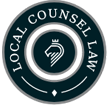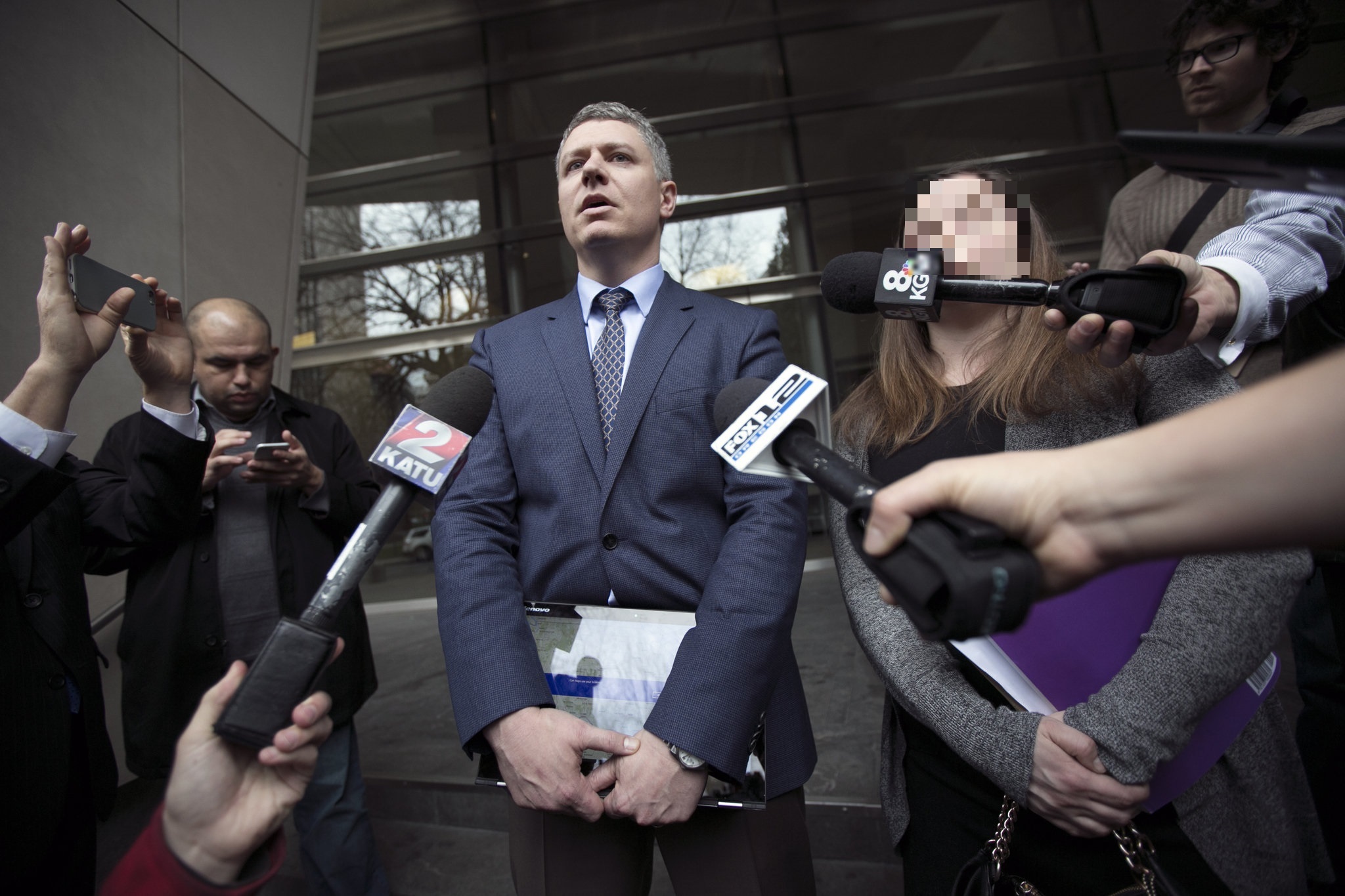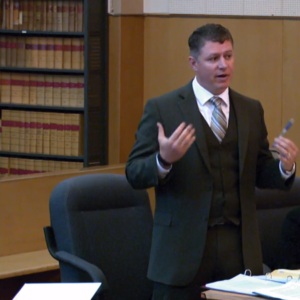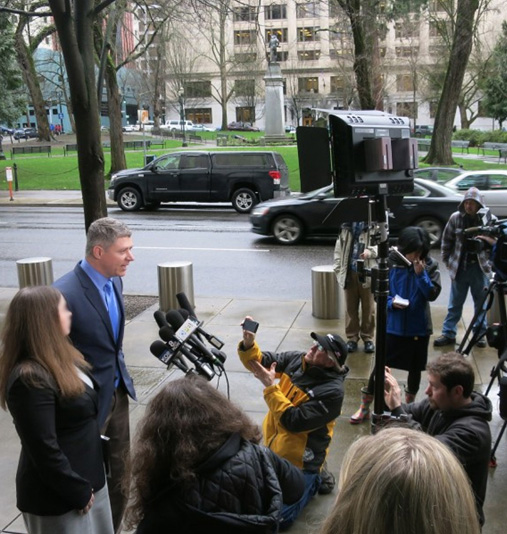The Critical Relevance of Pre-Judgment Abuse in Oregon Custody Modifications: A Guide for Pro Se Litigants
In Oregon, the process of modifying custody arrangements demands careful consideration of numerous factors, all aimed at determining the best interests and welfare of the child.
Among these factors, the history of abuse by one parent towards the other, as outlined in Oregon Revised Statutes (ORS) 107.137(1)(d), and the ability of each parent to support a positive relationship with the other, per ORS 107.137(1)(f), hold significant weight. This article delves into the importance of pre-judgment abuse in custody modifications, providing pro se litigants with insights into how to effectively present this evidence in court.
Understanding the Legal Framework
ORS 107.137(1) serves as the cornerstone for custody decisions in Oregon, prioritizing the child’s best interests and welfare. Specifically, subsections (d) and (f) highlight the court’s obligation to consider any history of abuse and each parent’s willingness to facilitate a nurturing relationship between the child and the other parent. Importantly, these provisions do not restrict the relevance of abuse to a specific timeframe, thereby affirming the importance of considering pre-judgment incidents of abuse.
The Timeless Impact of Historical Abuse
No Temporal Limitations
The absence of temporal restrictions in ORS 107.137(1)(d) underlines a crucial legislative intent: the impact of abuse on the child’s well-being and family dynamics does not diminish over time. This statute empowers pro se litigants to argue that historical abuse, regardless of when it occurred, is pertinent to the court’s evaluation of the best interest of the child.
Co-Parenting Considerations
The statute’s focus on co-parenting dynamics, particularly the ability and willingness of each parent to support a positive relationship with the other (ORS 107.137(1)(f)), is directly influenced by the history of abuse. Pre-judgment abuse not only sheds light on the abuser’s behavioral patterns but also raises concerns about their ability to contribute to a healthy co-parenting environment. This connection underscores the relevance of historical abuse in assessing a parent’s suitability for custody.
Addressing Parental Alienation
The potential for parental alienation is a significant concern in custody modifications, with historical abuse serving as a predictor of such behavior. A parent who has exhibited abusive behavior towards the other parent may be more likely to engage in actions that undermine the child’s relationship with that parent. This risk makes the inclusion of pre-judgment abuse evidence not only relevant but essential for a comprehensive assessment of what arrangement serves the child’s best interests.
Crafting Your Argument
Highlighting the Statute
When facing objections to the relevance of historical abuse, pro se litigants should reference ORS 107.137(1)(d) and (f) to reinforce their argument. Citing the statute not only demonstrates an understanding of the legal basis for including such evidence but also challenges any misconceptions about its relevance.
Illustrating the Impact on the Child
Pro se litigants should prepare to articulate how historical abuse impacts the child’s emotional and psychological health, emphasizing the lasting effects of such behavior on the child’s welfare and the dynamics of co-parenting. Providing concrete examples and, if possible, supporting evidence can strengthen the argument for the critical consideration of this history.
Conclusion
Furthermore, it is logically relevant to consider pre-judgment abuse in the context of co-parenting dynamics due to the underlying bias and motive of the past abuser towards the child’s other parent. Historical abuse not only reveals a pattern of behavior but also provides insight into the abuser’s perceptions and attitudes toward the other parent. This insight is crucial, as it establishes a causal nexus between past abuse and potential acts of parental alienation or a failure to facilitate an ongoing, positive relationship between the child and the other parent.
The bias and motive rooted in the history of abuse can manifest in various detrimental behaviors, including efforts to undermine the other parent’s relationship with the child or non-cooperation in co-parenting arrangements. Such behaviors directly contravene the statutory requirement outlined in ORS 107.137(1)(f), which emphasizes the importance of each parent’s willingness and ability to support a close and continuing relationship between the child and the other parent. In cases where historical abuse is evident, the court must critically assess the likelihood that the abuser’s entrenched biases and motives will negatively impact their capacity to uphold this statutory criterion.
Bias and motive are universally recognized as relevant factors in understanding and explaining actions that harm interpersonal relationships, including parental alienation and the deliberate obstruction of co-parenting efforts. By examining the root causes of such behaviors, the court can make informed decisions that protect the child’s best interests, ensuring they maintain healthy relationships with both parents wherever possible. The inclusion of pre-judgment abuse evidence is thus not only pertinent but essential for a comprehensive evaluation of the family’s dynamics and the formulation of a custody arrangement that genuinely reflects the child’s welfare and developmental needs.
In conclusion, acknowledging and evaluating the relevance of pre-judgment abuse is indispensable for discerning the true dynamics of co-parenting between the parties involved. This consideration is vital for safeguarding the child’s best interests, as mandated by Oregon law, and for preventing the perpetuation of harmful biases and motives that could undermine the child’s well-being and familial bonds.
Apply to be a Client – Free Intake Team Consult
If you’re ready to secure robust, aggressive, and knowledgeable legal representation, contact the Law Office of Mike Arnold today for a free intake team consultation.
Contact Information: Call 541-359-4585, schedule a free intake call, or send an email to connect with our team.
































